 August 4, 2015 Lately I’ve been deluged by email solicitations to publish “sponsored content,” turning down so many advertising requests that I now have a template reply that goes something like this:
August 4, 2015 Lately I’ve been deluged by email solicitations to publish “sponsored content,” turning down so many advertising requests that I now have a template reply that goes something like this:
“Thank you for your interest and outreach, but currently Shaping Youth is a self-funded, nonprofit, media literacy entity, thus we take no advertising, content marketing, link agreements or unsolicited guest post contributions to ensure we’re free of industry tethers and conflicts of interest. —All the best, Amy”
As a writer/producer who started out in journalism in the days when media bias could get you canned and even using adjectives could create a slippery slope of word choice and skewed power, it seems odd that I’d need to explain this.
Once upon a time in Cronkite land, before The Outrage Industry took hold, journalists embraced at least the illusion of objectivity as a core benchmark of professionalism.
That’s all been torched for new business models both online and offline, as “native advertising” creeps into coverage, and pay for play content marketing blurs the lines into advertorial…not to mention the unfettered cronyism that would make Edward R. Murrow turn in his grave.
When product launch pitches come across my desk that are printed verbatim in national news sources, and sponsors snuggle in with media machinations as cozy bedfellows in mainstream magazines, the incredulity is visceral. My ‘always on’ radar translates headlines into questions, “Is this really worthy of children’s media news or just PR fluff-n-stuff?”
After all, if Forbes COVER copy can become a glorified ad, the New York Times can shrink the size of their “paid post” snipes to mouse type and The Atlantic can deeply embed a six-figure paid promo for House of Cards in the feature’s focus of heavily researched content, it’s clear we are ushering in a new era of ‘native advertising’ that rams up against the old ‘separation of church and state’ underpinnings of journalistic credos. Et tu Boston Globe?
Children’s App Reviews: Is Pay for Play Prominent?
Today I’m launching a “point/counterpoint” series on how this plays out in one small but significant media nugget…Children’s app reviews.
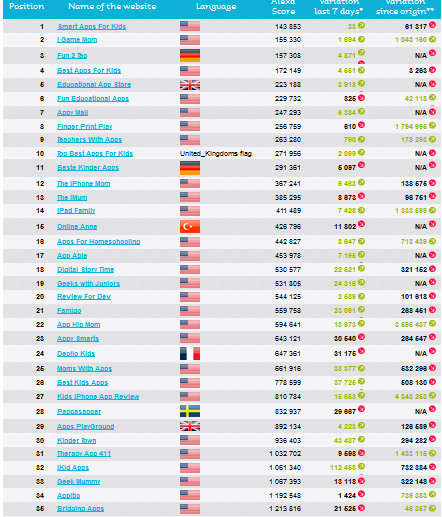
There are scads of kids app review sites and it’s noteworthy that parents seeking guidance on wading through lists of “best apps” seals and superlatives to determine what’s appropriate for junior are often gobsmacked to find a large chunk of kids app review sites are being paid to “expedite” reviews to the top of the heap.
As feature editorial becomes blurred beyond journalistic recognition, it comes as no surprise to me that “advertorial” reviews may harbor fee for service transactions that are not readily apparent.
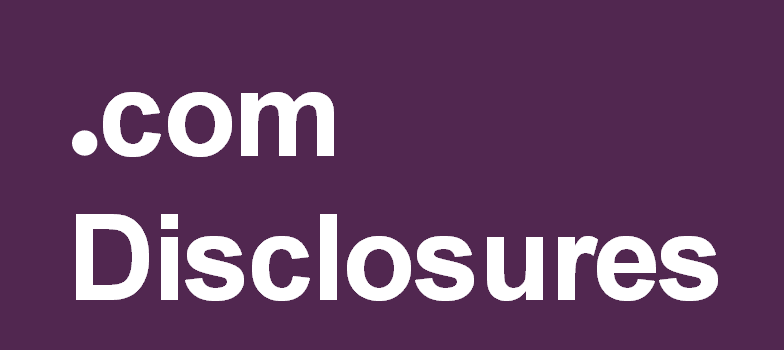 As a teen might say, that feels “sketch” to me without full disclosures, as parents can be particularly naïve given that they grew up in a pre-digital world before “sponsored posts and tweets” existed.
As a teen might say, that feels “sketch” to me without full disclosures, as parents can be particularly naïve given that they grew up in a pre-digital world before “sponsored posts and tweets” existed.
App developers have tried to take a strong stand against ‘rate card’ review processes for several years, but now it’s almost normative and highly nuanced. On the other hand, some of the best indie/blogger review sites are investing countless hours and labor to raise the bar for understanding in the field, and can barely eke out a cup of coffee with the paltry earnings from misunderstood monetization models. As one shared, “So many people erroneously think website traffic is monetarily valuable, but only to a certain point and it’s pennies, not dollars for most sites. What is valuable is influence.”
And what about that “influence?” How is that hard earned credibility parlayed into profit? Or IS it?
For parents, and others like me tangential to the apps arena, it’s hard enough trying to figure out which “best apps” sites are actually paid reviews since they’re often not clearly marked, much less connect the dots of industry relationships and cliques in “it’s a small world after all” style. At best it mirrors the Facebook status line trope…“It’s complicated.”
![]() Who used to work with whom? Who hails from what big industry corporation? Who’s split off to become an indie content hub with multiple contributors and various values as to what constitutes star-worthy quality? As for review sites themselves, one respected pro reminded it’s not about size, it’s about content and credibility.
Who used to work with whom? Who hails from what big industry corporation? Who’s split off to become an indie content hub with multiple contributors and various values as to what constitutes star-worthy quality? As for review sites themselves, one respected pro reminded it’s not about size, it’s about content and credibility.
“A polished website can be run by a single person, equally polished apps can have a single creator.”
That certainly applies to Shaping Youth. I laugh out loud when academics ask how many ‘researchers’ I have on ‘staff’ writing these long form articles for kids media analysis. HA! That’s a knee slapper. Nada. Bupkiss. Yours truly. Period. In the wild west frontier of kids app reviews, criteria itself is non-standard, and size, readership, ratings and rubrics can be meaningless without full context and critical thinking. Point? Parents are behind the eight ball here.
Even respected sites WITHOUT ‘fee for service’ arrangements may have fiscal tethers and funding from media moguls that could present a conflict of interest. Not saying they always will, but in the name of media literacy, I strongly feel ties should be disclosed and acknowledged right up front…kind of like the “just label it” right to know campaign with genetically modified organisms/GMOs. We have the right to know!
This is three year old data via AppyNation’s ‘Hall of Infamy’ list but it’s still important to see an attempt to compile who’s doing what with whom. And for sheer quantity, here’s an Alexa score breakdown by ReviewForDev.com on “educational sites” to share the copious quanitities of kids app reviewers out there!

What should parents and educators look for to discern bias, glean quality feedback and evaluate rubrics and benchmarks?
How do parents and educators assess and find quality apps in a crowded marketplace of over a million kids apps on iTunes alone, much less Google Play/Android. Where’s the wiggle room in the FTC online advertising disclosures 53pp whopper of a document and the updated FTC endorsement Q&A with blogs and brands doing “expedited” reviews? What are best practices in this new frontier? And most of all…
Why aren’t we seeing the “clear and conspicuous” FTC rule apply to children’s apps if a review is bought and paid for?
These are just SOME of the elements we’ll be chatting about in this series, peppering in comments from leaders in the field to shed light on what has been a far too shadowy area, as newcomers arrive on the kids app review curation scene by the nanosecond, while others exit ‘stage right’ citing the sheer magnitude of the workload for miniscule money.
 As I pinged industry pros for interviews on their thoughts and best practices, the clucking in the children’s media sphere sounded more like the “Little Red Hen” fable (“not I said the cat, not I said the duck”) in terms of denial mode for what constitutes content marketing.
As I pinged industry pros for interviews on their thoughts and best practices, the clucking in the children’s media sphere sounded more like the “Little Red Hen” fable (“not I said the cat, not I said the duck”) in terms of denial mode for what constitutes content marketing.
Face it, there’s a considerable amount of trust and influence built on personal integrity and credibility over policy and practices. But how does one monetize that?
Yes, there are some excellent paid review sites with stellar breakdowns of apps in detail. But there’s also plenty of churn and burn gaming of the system of Google search to glean “discovery.” My rub? Clarity.
Some paid app reviewers and bloggers seem to feel that if they’ve spelled out their terms SOMEwhere on their site, then they’re good to go, with no need to flag sponsored content within individual posts, nor make it evident that money has exchanged hands in fee for service. I don’t think that’s clear enough, and I don’t think the FTC would either…since their “clear and conspicuous” designator does not mean buried in an “about us” tab.
Like mainstream media’s surge toward “native advertising,” I’d like my editorial served straight up with a disclaimer, and not with a side of teeny weeny mouse type font, thank you very much.
When asked about vested interests in both the .org and .com review hubs, one blogger who used to write apps reviews for a hub site with mainstream syndication and noticed a trend toward new monetization models attempting to help contributors earn extra ‘lunch money’ answered candidly:
“Generally, I’m completely sympathetic with needing to monetize review sites, and paying for reviews doesn’t bother me at its core, particularly for blog sites. But anything sponsored should have a big ol’ ‘sponsored post’ label at the top. For news outlets, I’m not keen on it because there’s a higher threshold of objectivity.” As for industry tethers, I’d rather have a Common Sense Media with a corporate underwriter than no Common Sense Media at all. Parents/people expect so much information to be free, but to exist at all people need money.”
So why all the “off the record” anonymity?
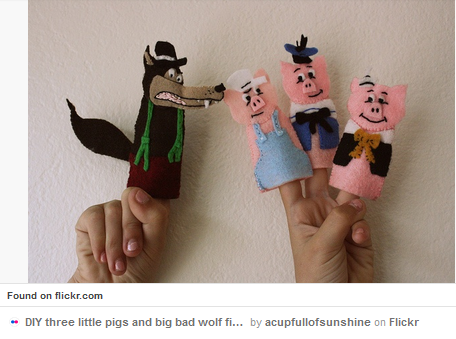 I’ve got to say, this is one of the toughest series of “on the record” interviews I’ve ever attempted with almost two months of compilations since I had the idea of pursuing a ‘point/counterpoint’ approach to expedited reviews while attending the Tech with Kids app conference.
I’ve got to say, this is one of the toughest series of “on the record” interviews I’ve ever attempted with almost two months of compilations since I had the idea of pursuing a ‘point/counterpoint’ approach to expedited reviews while attending the Tech with Kids app conference.
Initially, 26 out of 26 interviewees wished to remain ‘off the record’ before I found a small handful finally willing to be cited as interview numbers climbed into the 30s…Why?
Industry wise, the anonymity feels like it’s less about purposeful covert operations and cronyism and more about the fear of the feds when speaking on the record about expedited reviews…In fable parlance again, it’s trying to dodge the ‘big bad wolf who can blow the house down.’
Anonymity: Industry Lens
No one wants to call attention to their own specific kids app review disclosures and handling, for fear of further scrutiny from watchdogs sniffing around. I get this. As one who disdains bureaucracy to the point where I never took a completely legit home office deduction simply for fear of being ‘flagged,’ many entrepreneurs and indie folks have a petrified paralysis when encountering paper pushers or red tape law citers as they don’t even want a blip on their radar much less a beacon, even if they’re “doing it right” and completely legit in their disclosures in each and every data nugget!
Personally, if I were an app reviewer, especially a paid one, I’d make sure EVERYTHING was overt and divulged just to cover my tail for compliance in that whopper of an FTC document called “.com disclosures.” (full 53pp document here)
Anonymity: App Creator Lens
On the flip side, app creators interviewed held a blend of bitter resignation, raw emotion, and a fear-based element of retribution in the ‘small world’ environs of app developers who desperately don’t want to misstep with too much candor and risk being blacklisted or typecast as a ‘troublemaker’ by big name reviewers. Trying to glean experiences and personal anecdotes about children’s app payments much less specifics on costs and data beyond what’s printed on rate cards took on a cloak and dagger “deep throat” style that rivaled only my own attempts to ‘go undercover’ and ask for review timing. Wild.
What ARE the FTC disclosure requirements?
Even with social media’s proliferation of so-called “influencers” there are very specific FTC “influencer” guidelines that spell out nuances like the disclosures of paid ads, sponsorship, and accepting entry to a conference which falls under the 23pp FTC Endorsement Guidelines. Even short form media ‘tweets’ are supposed to be hashtag labeled if there’s a vested interest with a demarcation like “#ad.” I’m sure not seeing that happening much.
When touting an app via blog post, Pinterest board, tweet or ANY form of social media, if the purveyor of the app paid for presence in some manner, it’s pretty clear that the FTC’s intent is for you to disclose that.
In fact, there’s a compliance summation in “digital disclosures for bloggers and brands” that it would behoove all bloggers to read. Instead, even some of my most savvy media literacy colleagues “assume” if a reviewer has been paid the content will be clearly marked on each review. Ha! Fat chance. (Insert incredulous eyeroll and sigh.)
 It’s a Tower of Babel trying to figure out who is and isn’t supposed to disclose what types of data and why…I use Social Media Explorer’s citation of the FTC’s M&Ms mneumonic: Mandate, make sure, monitor. As long as we’re onboard with handy alliteration I’ll add that it’s NOT just about money… If there’s an exchange of perks, passage, or products it needs disclosed. Period. “Pay me to trust you” is an explanatory cheat sheet by BlogWorld explaining FTC policy at a glance.
It’s a Tower of Babel trying to figure out who is and isn’t supposed to disclose what types of data and why…I use Social Media Explorer’s citation of the FTC’s M&Ms mneumonic: Mandate, make sure, monitor. As long as we’re onboard with handy alliteration I’ll add that it’s NOT just about money… If there’s an exchange of perks, passage, or products it needs disclosed. Period. “Pay me to trust you” is an explanatory cheat sheet by BlogWorld explaining FTC policy at a glance.
EVERY nugget of media requires deeper critical thinking to discern bias, as part of a media literacy imperative strongly advocated by those of us who feel schools are doing a disservice to youth by not making this a substantive, mandatory, full throttle focus. Here are a few of the media literacy fundamentals applied to children’s apps:
Follow the Money Trail: How is the Site Funded?
In popular review sites that do NOT charge fees, think about how they make their money.
Is the app review site by subscription? Syndication? Events? Affiliate sales links? Corporate funders? Subsidized by foundations, grants, or research? Selling award seals, products, or licensing and use fees? A freemium pay gate to more robust research?
Look deeper into their criteria to see what it is they VALUE and how they gauge quality. Professional sites detail their rubric and rating system for reviews in depth…
 This screenshot from Children’s Technology Review is VERY upfront with their criteria and even addresses bias. They veer toward a “constructivist, active learning” framework that takes on more of a training/guidance “mentorship” approach to reviews by citing specific examples of why a rating received low or high stars.
This screenshot from Children’s Technology Review is VERY upfront with their criteria and even addresses bias. They veer toward a “constructivist, active learning” framework that takes on more of a training/guidance “mentorship” approach to reviews by citing specific examples of why a rating received low or high stars. 
Do your homework. Read the Figure out who values what and why. Otherwise it’s hard to make sense without context. Some #edtech sites for example have very specific goals and teaching guidelines, other app reviewers focus on informal learning and play based participatory discovery.
This ratings rubic from Common Sense Media takes a ‘trust us’ approach to their stance, stating they are unbiased and “not influenced by the creators or by our funders.”
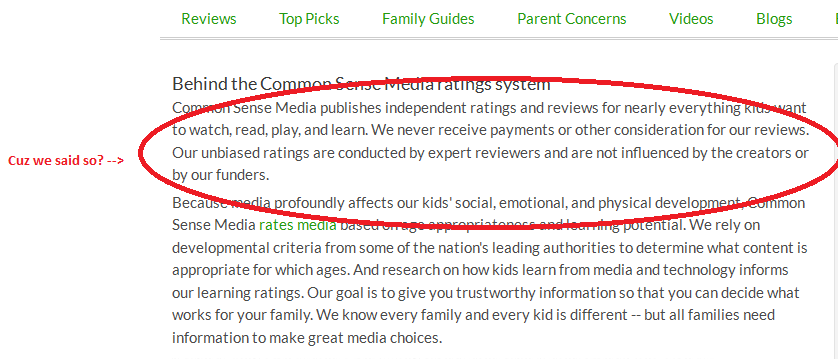
The onus is on the critical thinker to click through to their board of directors and their board of advisors which reads like a who’s who list in the media industry, segueing into multiple channels of partnerships, affiliations, and distribution ties bundled into a detailed “about us” section titled “supporters.”
This is not an accusation of bias, but rather a plea to stay informed.
It’s a “be aware” not “beware” statement, which especially applies to the media education field and politics of ed tech, research grants, tech titans and schools, corporate coffers and curriculum, and national media literacy sponsorships in our own trade organizations like NAMLE as well.
What matters to you most?
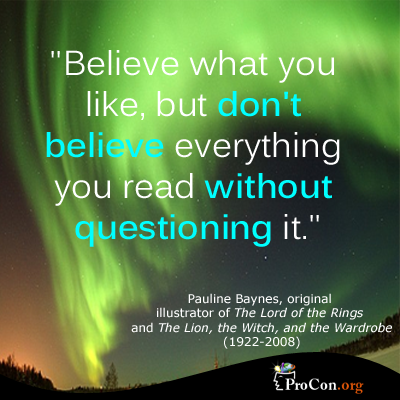 If it’s “educational apps” know that term alone is highly subjective and review sites are all over the board with quality, readership and yes, work for hire paid reviews too. “Educational” gets slapped on to plenty of apps the way “all natural” means nothing in food labeling lingo.
If it’s “educational apps” know that term alone is highly subjective and review sites are all over the board with quality, readership and yes, work for hire paid reviews too. “Educational” gets slapped on to plenty of apps the way “all natural” means nothing in food labeling lingo.
Like apps and kids tech specialist Jinny Gudmundsen mentioned in her prior interview on Tech with Kids READ through the rubric as to what is most valued and think critically about how that matches your own criteria… Productive use of screentime? Fun factor? Open-ended play? New ways of imparting basic concepts? I always start with looking at the ‘about us’ section first on any site. Wise words from this industry pro:
“It’s like picking a movie critic — you want to find someone with the same taste as you. I read other reviews by that site/person to see if I agree with them. What are they calling out as a “good” feature, and do I agree? Certainly if I try a recommended game and hate it, or see someone slam a game I love, I look elsewhere.”
“Also…keep a careful eye out for people who promote crappy apps, or people who tweet about crappy products/brands, or products/brands that have nothing to do with their site…”
Apply Hemingway’s “Crap Detection” to Kids Apps
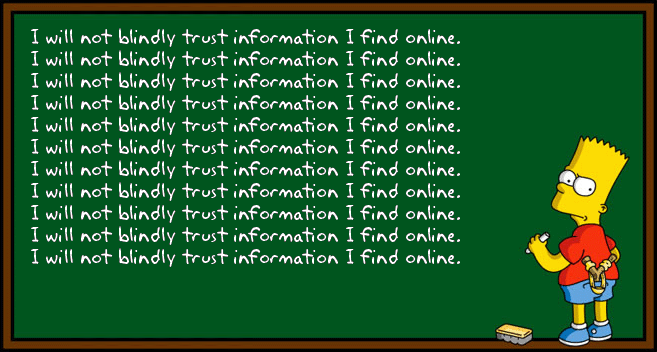 Digital literacy and credibility king Howard Rheingold often quotes Hemingway’s ‘crap detection’ coinage for his use in critical thinking with all media. (and the Bart Simpson chalkboard generator drives the point home nicely)
Digital literacy and credibility king Howard Rheingold often quotes Hemingway’s ‘crap detection’ coinage for his use in critical thinking with all media. (and the Bart Simpson chalkboard generator drives the point home nicely)
Children’s app reviews should be subject to the same circumspect sniff test to detect a whiff of paid promotion or a public relations buzz blitz fast. If a site offers “expedited” review policies, does that mean there is an inherent bias? Or is it a cost of doing business reflected in the quality and depth of the review? Are the larger sites that have higher overhead and traffic paying for hosting through different funding methods, or absorbing the costs elsewhere? Are free contributor sites cranking out content marketing to game the Google search systems?
These are all hotly debated topics in the children’s app review arena, and in part two and three we’ll be detailing all sides and perspectives. Meanwhile here ARE a few more comments from industry pros that belong in everyone’s app literacy toolchest:
Watch the hype and content farms: “I advise my clients to NOT go after every blogger on the planet, but rather personalize a pitch to bloggers that are really in the right niche. Those can go a much longer way. Readers and developers should also have a close eye looking out for sites that aren’t really “written” but just churn out press releases and giveaways.”
Buzz isn’t necessarily paid: “If a few people I follow start talking about an app, I take notice. Sometimes apps come out and they’re pretty “buzzy” and I’m actually skeptical that I’ll like it, but then I end up loving it. Word of mouth is still key. Listening to who you trust means using your own personal learning network.
Everyone has bias: “Mainstream media has bias, nonprofits have bias, indie bloggers and reviewers have bias…Parents just need to find which sites consistently point them in the direction they have found to be valuable…paid or not. Nonprofit or for profit.”
The influence of not being influenced is a core value for many parents, but it’s a rare site that can deliver on that promise without pay, it’s simply not sustainable. That goes for Shaping Youth as well. Long time readers can also easily see my own personal bias, particularly around coinage and consumption, sexualization and stereotypes, which translate vapid values into behavioral cues impacting kids.
I try to call out the good and the bad, and take some Windex to my own window on the world for a self-check and transparency about same, as in this first post about Frozen, “Icing Out Personal Bias.” In the apps world, I skew toward prosocial innovation and cool concepts but that’s pretty universal on this site across the board; if I’m writing about someone I have ever met, I make that VERY clear as well.
Are paid app reviewers prevalent? Less relevant?
 Without a doubt, strong opinions surge forth about the proliferation of paid review sites in today’s marketplace and opportunities and challenges for app creators astound.
Without a doubt, strong opinions surge forth about the proliferation of paid review sites in today’s marketplace and opportunities and challenges for app creators astound.
Seasoned app developers and larger media entities with licensed content and big industry ties are often able to afford public relations firms to get the word out but does that mean they’re landing in “best apps” lists more often?
What happens to indie innovation and an app maker’s survival as tiered coverage and payments comes into play?
How can newbie app developers cut through the clutter of a gazillion app review sites and reach reporters on respected syndicated sites that do NOT charge for expedited reviews? After all, discovery of an app in oceans of offerings is daunting…
Tech with Kids/USA Today, Children’s Technology Review, Common Sense Media, are often the ones doing this ‘discovery’ of noteworthy small, innovative app companies with highly creative buzz, and they often have the most reach. That’s a particularly heartening tidbit, given that one app creator lamented:
“Expedited reviews are in a kind of murky gray area when it comes to ethics. On the one hand I understand that websites need to make money, and that revenue from advertisements alone may no longer be enough to support many of these sites. On the other hand it’s very frustrating as a developer when I’m required to shell out hundreds of dollars to have any chance of my app getting reviews on the bigger sites. It seems that, for whatever reason, this has become very standard when it comes to reviewing kids apps.
The vast majority of the top sites now do paid expedited reviews. Most of them say something along the lines of “if you submit your app to us, it’ll take us months to even look at it so we suggest you do an expedited review.”
And this kids media blogger added important nuance that extends far beyond the fiscal realm:
“I don’t do sponsored posts because that’s not how I make (or want to make) a living/extra income. I have so little time to write that I’d rather write about the things I’m really passionate about. Of course, that’s not to say I don’t have my own share of conflicts of interest. I do work for giant companies, and I’m often asked to review things from other parts of those companies. I try to disclose clients, but sometimes NDAs prevent it. I also disclose if it’s something made by friends of mine, or (obviously) if it’s something I personally worked on.”
Wow. So many angles and topics to discuss.
What are we missing when brilliant apps can’t make it out of the starting gate with enough ‘ooompf’ to sustain themselves?
Is there any hope for trying to level the playing field?
Find out more in the rest of the series, as we interview small, new app developers and gaming startups to view through their lens as well as insightful commentary from larger industry veterans, indie bloggers and respected pros like Carisa Kluver the creator of this helpful primer post, “Dirty Little Secret About App Review Sites.”
Meanwhile, think critically. Stay tuned. There are multiple facets to this gem of a debate.
Visual Credits: Money talks graphic ’08 anunciosgratis.cl, best apps trophy app via TinEye-DepositPhotos/stock photog; ProCon.org quote visuals, Bart Simpson Chalkboard Generator, Little Red Hen, FramingTheDialogue.com, Hand puppets-A cup full of sunshine on Flickr/see notation embedded in visual.









Great post! It has to be a HUGE issue for parents who want to decide what apps their kids will have on their devices to be able to find good reviews to help them navigate all the choices out there.
As someone who reviews books, and owns a bookstore, I do often find myself a little uncomfortable when I write a review of a book that I also intend to sell in our shop. But, those who know us know that if we say we really love a book we REALLY love that book. And, frankly, if I don’t love a book I don’t write a review. I will often write to the author or publisher and share my misgivings if I have any, and I’ve had mixed results in doing that.
I appreciated the app developer’s concern, that you included in your post, about the need to pay someone to get an “expedited” review. I think the advice also shared in the post is critical, you have to find someone who is passionate about the type of content you’re creating, whether it is an app, a book, a toy, etc…. and pitch directly to that person and explain why your creation matches their passion (or at least you hope that it does).
OK – Now back to my Publisher’s Weekly where I hunt for new books (a friend’s book just got a great review which I’ll be sharing on Facebook cuz he deserves it!!).
I often read app reviews and I don’t feel concerned about some websites offering expedited reviews packages. Anyone who read more than five app reviews can easily recognize honest opinion from promotion. And anyway, after reading a review, users land on the App Store page where they will often find more feedback from users to help them make their mind.
However I agree that better regulation in this aspect will never hurt! Great job on doing the research for the article!
This is a great post. It is a complicated world out there for apps and app developers. I actually wonder what the percentages of app reviews on these app reviews sites are paid! After our experience with trying to get reviews on our kids apps, where we went down the route of paying and non-paying – I am starting to think that a high percentage of the reviews on these sites will be paid! Coz they didn’t have much time to look at apps that we didn’t pay for reviews.
Great discussion. Sad to say, that our experience has been that most app review sites have little or no impact on sales or awareness of our apps. The exception is Children’s Technology Review and Common Sense Media – both sites without paid promotion and a rigorous process. The direct result of this is that we don’t pay for reviews or content posts with bloggers. That said, paid reviews are no different than mobile or facebook advertising to parents as long as the payment is disclosed. I like to think that parents are savvy enough to know that many of the products featured by bloggers / review sites are all paid for – whether through a media buy or other promo, which is no different than in the print world. The fundamental issue here is that app developers have few opportunities to promote their apps!
Bravo! Thank you for tackling this huge issue in the kid’s app space. Personally I only recommend Common Sense Media for app reviews. I work with many app developers and don’t recommend paying for app reviews. As one of the founders of Moms with Apps(now owned by small business association, not “Mom”) I have been surprised at how many people just want to make a buck in the field.
I am hoping articles like this will help change the tide and get better information out to parents and teachers.
Thank you!
All, thank you for your thoughtful comments… There are more opinions/voices/voices being logged in on Facebook in the Dust or Magic group for app developers https://www.facebook.com/groups/dustormagic/10153134249862424/?notif_t=group_comment_follow and also the group called Children & Media Professionals with admin by David Kleeman: https://www.facebook.com/groups/133583286677976/
Here’s a sample response/very thorough reply from Warren Buckleitner who runs the Dust or Magic group and Children’s Technology Review on FB…
“Amy Jussel I’ve waited for years for somebody to thoughtfully review the reviewers — so can we buy an award? Seriously you’re the first to discover our “bias” page… you win the prize for that. Can we all agree that our next generation children deserve honest, high quality reviewers to write high quality reviews to help busy parents, teachers and librarians find high quality interactive media — “good information is lubrication for change.” I’d agree that disclosure and honesty is an essential and often missing element in the review process — I don’t care if you are running a review site that is monetized by consulting, expedited reviews, ads or affiliate sales (and I think some of these reviews can be useful); but I do mind if you don’t tell me. I’d add a few points to your “things to ask” — Is there a name with the review? If so, can you find a bio? If so, does this individual have any background in teaching or child development? (Again, to be clear, I’m not saying people that don’t have credentials are “bad” reviewers … it’s more that you should be able to tell…). Is the review written by a “kid person” or a “business person” (e.g., did they major in Law as an undergrad, or teaching?) What is their motive for writing the review? Is it to help the field or for self fame or $ (e.g., to sell a book?). How many other products have they reviewed — and most importantly — do they test with or have any knowledge of real children, play, engagement, motivation or child development? Again I’m not saying former lawyers can’t be good reviewers, but I do think they should be clear about how they developed their “voice.” CTR was originally designed as an academic exercise to bring the “voice of Piaget” to the review process; and this is our bias. And there’s another practice that should be called out — I’d like to see a “code of ethics for reviewers” that ask us all to reference other reviews or reviewers by name if we use key conclusions or ratings from another reviewer, or if they use (or were inspired by) that reviewers rubric. This is standard academic protocol but it seems to have been forgotten.”
p.s. Mei, your commentary is consistent with my findings in speaking with 30+ interviewees, and I’ll be covering this more in part 2 & 3…Nancy, I wish it were so (that parents had the circumspect critical thinking skills to question the authority of the blog/review/etc. but meh…not so much…Mainly because everyone is under the impression that the FTC has disclosures under control and that folks would have to use disclaimers if paid…that is simply not happening in any way, shape or form…as it’s the RARE app review that snipes it as ‘sponsored’ much less hashtagged in social media as a PR representative…soooooooooo again, I’m all about transparency regardless what model of monetization people are using!!! Alesha, yes, CSM continues to be the ‘go to’ site for many parents, which is great…I use it too…but again, I want educators and parents to lift up those carpets and critically discern context…especially when following the money trail. It’s just good policy.
p.s. Craig, as a publisher, you come from a slightly diff angle in terms of being able to sift and sort personal picks using your clout as more of an editorial arm with full disclosure, and an eye toward what’s good from your ‘reach and teach.com’ vantage point which is readily apparent on your site. That’s very different than the app world where these paid reviews are infiltrating the Google SEO etc. as it precludes quality/innovative apps from getting the exposure or ‘lift’ they need when drown out by pay for play…and can result in crash-n-burn on the sustainability front for indie companies. That part alarms me…as it’s impt to let the ‘cream rise to the top’ and we’re not seeing that happen when money talks and biggies can bury the little apps worthy of creative applause.
I should add that part two and three are delayed a tad as my mom’s been hospitalized and I’m in eldercare triage on the homefront…but it’s coming! Keep those opinions/outreach emails etc. headed my way…Again it’s amy at shapingyouth dot org… It’s been MORE than a tad enlightening…whew.
I love Twitter, this “conflict of interest” bingo is sublime for health literacy and applies to kids media, apps, and media literacy overall too. Gotta research the researchers, watch the watchdogs and study the studies for spin-spotting/critical thinking! –> https://twitter.com/prof_goldberg/status/630822492416950272
Amy-Our app reviews are for our customers only, but we’d love for you to sample them and get your feedback (and comparison to others) if you’d be willing. In addition, we are working with Teachers with Apps to make them free on a case by case basis. I hope you will be in touch, either directly via email or you can email me through the Mindprint website